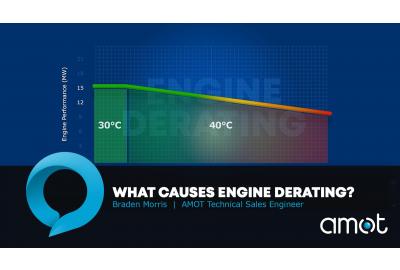Engine derating is the reduction of an engine’s output due to less-than-ideal operating conditions. Derating sometimes is done intentionally when you want to prolong the engine’s life and avoid substantial wear or damage. However, in some applications, such as a power generation facility, unwanted derating reduces the energy production which leads to lost revenue potential. Watch our video below to learn the causes of engine derating and how it affects engine performance.
Ambient temperature has a significant effect on an engine’s output. As the ambient temperature increases beyond designed operating conditions, engine derating begins, decreasing its efficiency. For example, if an engine is designed to operate at 30°C, and the ambient temperature reaches 40°C, the engines can experience a reduction in power by as much as 5-10%.
In these environments, to operate within the manufacturer’s recommended specifications and maximize performance, it’s important to extract as much heat out of the engine’s cooling system.
Deficiencies in a cooling system can result in higher engine fluid temperatures, which translates to a greater reduction in engine performance and an increase in fuel consumption.
Although we cannot completely control engine derating due to high ambient temperatures, there are ways to mitigate some of the negative effects. AMOT has a range of temperature control products designed to maximize engine output and lower operating costs.
Contact us to consult with an application engineer.










